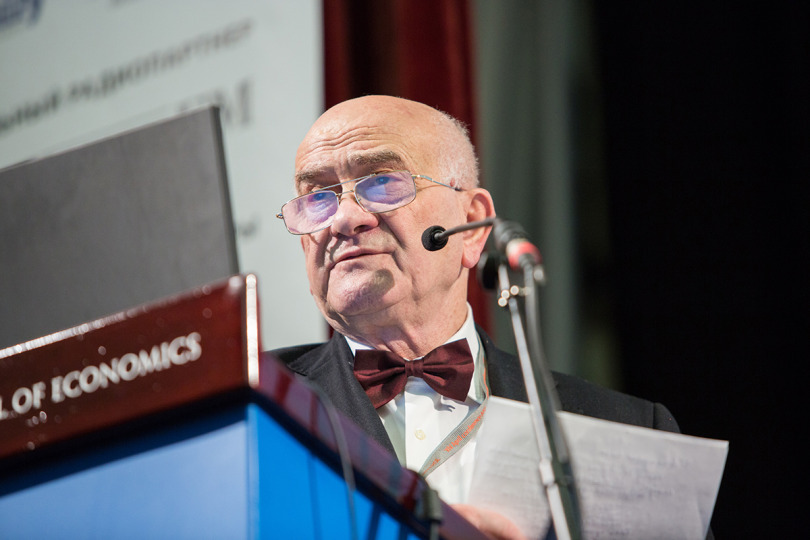Russian President Vladimir Putin Sends Greetings to April Conference Participants
Russian President Vladimir Putin’s greeting to participants and attendees of the XVII April International Academic Conference on Economic and Social Development.
HSE Students Became Winners of Interuniversity Olympiad in Arabic Language
Three HSE students of the educational programme in Asian and African Studies became winners of the 10th Interuniversity Olympiad in Arabic language.
Smart Macroeconomic Policies Essential but Not Sufficient for Economic Growth
A plenary on macroeconomics was held at the HSE's XVII April International Academic Conference on April 19, 2016.
HSE Urban Specialists Create New Profession
Staff and students of HSE Vysokovsky Graduate School of Urbanism discussed the prospects for the development of Urban Studies at HSE and in Russia at a meeting with the university’s senior management.
‘We’ll Develop Brands for Moscow Districts’
Undergraduate and master’s students of the HSE Faculty of Communications, Media and Design, together with the School of Sociology and School of Political Science are launching a research project on the need for design solutions in Moscow’s districts.
Macroeconomic Policies and Financial Markets: Progress and Problems
This year, the April Conference's plenary sessions will be held in a new format, specifically, discussions of the written texts of the papers prepared by the researchers. One session will focus on macroeconomic policy. Another will discuss policies regarding financial markets. The session moderators Evsey Gurvich and Nikolay Berzon describe some of the main topics below.

'Our University Is Growing Together with the April Conference'
April 19th marks the official start of the XVII April International Academic Conference on Economic and Social Development. Below, HSE Academic Supervisor Evgeny Yasin, who is also the Chairman of the Conference’s Programme Committee, discusses what participants can expect from this year’s conference.
Cooperation to Replace Сompetition
‘Values, Institutions and Trust’ is the title of this year’s April Conference plenary session featuring a paper by Victor Polterovich. For the first time, the conference's plenary sessions will be held in a new format as discussions of the written texts of the papers prepared by the researchers.
HSE Team Makes It to the Regional Finals of CFA Institute Research Challenge
A team from HSE has made it to the Regional Finals of the CFA Institute Research Challenge 2015/2016, recently held in Chicago. The CFA Institute Research Challenge is an annual global competition that provides university students with hands-on mentoring and intensive training in financial analysis.
Erasmus at Its Very Best: HSE and King’s College London Launch an Erasmus+ Exchange Programme
The Higher School of Economics (HSE) and King’s College London, United Kingdom, are pleased to announce a new Erasmus+ academic exchange and mobility programme for students, researchers and staff for the 2016/17 academic year.

